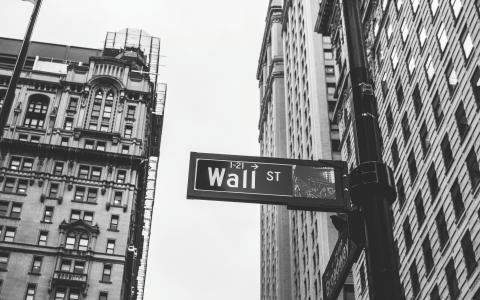
Looking to fund big spending projects at home, the United States has an ambitious pitch for countries around the world: It's time to overhaul the global tax system.
And after years of negotiations, a deal could be in sight.
Group of Seven finance ministers gathering in London agreed Saturday to back a global minimum tax of at least 15% on multinational companies. The group also said that the biggest companies should pay tax where they generate sales, and not just where they have a physical presence.
The news provides momentum ahead of the meeting of G7 leaders in Cornwall, England this week, as well as a meeting of G20 finance ministers in Venice, Italy in July.
An agreement among top economies would also accelerate negotiations among roughly 140 countries that are being led by the Organization for Economic Cooperation and Development.
"If the G7 agrees and then the G20, the likelihood of [a broader] agreement is probably pretty good," Elke Asen, a policy analyst at the Tax Foundation's Center for Global Tax Policy, told CNN.
But opposition remains from countries including Ireland, which has successfully recruited global companies including big US tech firms by offering a corporate tax rate of just 12.5%. It's expressed significant reservations over the Biden proposal.
Asen said whether nations like Ireland capitulate will depend on how much pressure is coming from bigger countries. A deal will only work if lower-tax regimes get on board.
Investor insight: Wall Street is worried about higher corporate taxes, but is brushing off the risk for now, betting that it will take some time for negotiations to translate into actual policy.
"Clearly there's impetus for some sort of global standard," Jeffrey Sacks, head of investment strategy in Europe, the Middle East and Africa at Citi Private Bank, said. "What's more interesting and relevant for us is the time scale. How quickly will this be imposed? That impacts directly on corporate earnings."
Citi projects that global earnings per share will increase by 30% this year and by 12% to 15% in 2022. Sacks thinks tax increases could potentially lead to downgrades in expectations for next year, and that investors may not be taking this into account.
But Asen thinks that realistically, it could be years before any deal moves beyond a political agreement and receives ratification at the national level.
New crypto investors process their first big crash
Grant McGurn is really glad he jumped on a FaceTime call with his dad.
The 27-year-old office manager in Madison, Wisconsin, had put all of his investments into cryptocurrencies, including bitcoin, ethereum and dogecoin, a joke coin whose rapid ascent he considered entertaining if "ridiculous." That alarmed his father, an experienced investor.
"He knew I had all my money in there and he was just like, 'I've seen this before with the dot-com bubble crash, and I don't want to see you lose thousands of dollars,' " McGurn told CNN Business.
He heeded the warning and sold his crypto holdings in the middle of last month, just as a massive rout was taking hold. Many digital coins ultimately lost almost half their value, or more.
"I was lucky," McGurn said. "I don't think I'm the norm at all."
McGurn is part of a legion of investors who are new to cryptocurrencies. Drawn in by the huge gains that started in late 2020 or excitement around dogecoin, they entered the market looking to make some quick money or to avoid missing out on the next big thing.
Now, on the heels of their first major sell-off, some are swearing off crypto investing for good, while others are determined to hold on, confident in its promise.
"I don't want to panic out of something I just ventured into," said Akshaya Parthasarathy, a 24-year-old living in Chennai, India.
This article originally appeared on CNN.



